Latest News
Creating a Technology Spark
Posted by on August 12, 2013 at 10:43 AM EDT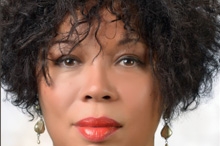
Deena Pierott is being honored as a Champion of Change for her work to expand opportunities for young learners from communities historically underserved or underrepresented in tech fields.
Deena Pierott challenges the status quo. She champions change and influences the course of events around her. During her decades-long career in the public and private sector, Deena consistently sought ways to be inclusive, remove exclusionary barriers, and insist upon full stakeholder engagement. Deena is a doer. She takes action, living by Tagore’s philosophy: “You cannot cross the sea merely by staring at the water.” Recognition of her efforts by the White House as a Champion of Change is fitting and validates her creative efforts and dedication to meet the needs of her community while promoting equity, diversity and inclusion.
Deena learned early that information is a powerful tool and that there are far too many that don’t have access - you don’t know what you don’t know – and in marginalized communities, what you don’t know can leave you behind. Deena creates bridges between marginalized youth and information. She enables access to Information about the broader world and how those youth can fit into it and thrive.
The promise of technology today and the dramatic impact it’s had on how we communicate and interact drives Deena to see opportunities for change and means for impacting the lives and careers of marginalized youth. However, young people of color and those who have been marginalized in various ways are not engaging with those thriving, specialized fields as career choices. Most tech-related opportunities are reserved for students who have already demonstrated promise and interest. In 2011, Deena started iUrban Teen Tech as a tool to provide empowering and inspiring programming that would steer these youth – especially the ones who are left out, overlooked and disengaged - into the fields of science, technology, engineering and mathematics (STEM). Her intended demographic is African American and Latino males, who are at the highest risk of dropping out of school in the Portland Metro area where Deena has built her program.
Since that time, more than 700 young people have experienced iUrban’s innovative programming known as iUrban Teen Tech. iUrban includes interactive workshops at tech summits that explore current technology trends and that expose students to leading speakers within various technologies. iUrban also sets up bi-monthly tours with local companies, allowing students to witness first-hand how technology is used and how it affects their daily lives. Industry tours include producers of animated video games, athletic footwear, cyber security, energy and many more. IUrban’s teen-led think tank also designs tech-based solutions for local community concerns and issues. These are then presented to public officials and business leaders.
What makes iUrban Teen Tech extra special is its community. It takes a village to support a child, and the iUrban village relies on all those stakeholders who have an interest in the success of these youth. Parents are at the center of that village, participating in summits, volunteering as chaperones on industry tours, and reinforcing the learning and exposure that students receive back in the household. iUrban also has the support of an impressive collection of leading regional CIOs through its STEM Industry Advisory Council. And, finally, universities, where as partners hosting programs on their campuses, they are able to excite student aspirations of one day going to college. Of course, no successful program could happen without the support of sponsors and volunteers – they help make it all happen.
“I am proud of the way that iUrban Teen Tech has established a welcoming community that also provides a strong support network, not only for racially marginalized children, but also those in foster care and youth with disabilities. At one summit, for example, we had participation from two tables of deaf students and we provided interpreters. We allow all youth that want to learn into our programs. Of course, not all of the participants who go through iUrban end up wanting to pursue STEM-related careers, but at least they’re having access to mentorship, being exposed to tech-related career possibilities, and most importantly, being motivated to graduate from high school and consider college as an option. Soon, iUrban Teen Tech will be expanding various parts of its programming into cities in Washington, California and other states.”
The development of iUrban Teen Tech has not been easy and does not rest on a strong financial foundation. Most of its sponsors, though generous, provide in-kind donations rather than the financial support the program needs. Its success and future continue to be in the hands of one very strong and dedicated woman and the support of a very few, yet consistent, volunteers. As Deena blazes a new path for marginalized youth to follow, she recognizes the uniqueness of her programs, their exceptional inclusiveness, and the broad impact of their diversity. The social impact of iUrban Teen Tech helping “Deena’s Kids” is enormous.
iUrban Teen Tech is part of Deena’s umbrella vision with two other social ventures: Mosaic Blueprint, a recruiting source for companies searching for diverse candidates, and the Urban Entrepreneur Network.“Everything I do is related to and fosters equity, diversity and inclusion. That’s what it’s about for me - trying to open doors for others as I wish someone had done for me. That is my path. Serving my community is what fulfills and inspires me to be a Champion of Change.”
Deena Pierott is the Founder and Executive Director of the iUrban Teen Program.
Learn more about TechnologyChanging the Face of Technology: Code Like A Girl
Posted by on August 12, 2013 at 10:37 AM EDT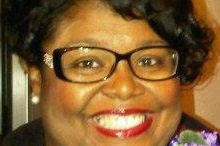
Cheryl Swanier is being honored as a Champion of Change for her work to expand opportunities for young learners from communities historically underserved or underrepresented in tech fields.
As a computer scientist and an educator, I am not here just to teach but to be innovative, creative, and to make a difference in the lives of the students that I serve. I am honored to be invited to the White House with others from across the nation who are increasing public engagement, particularly in technology. At Fort Valley State University (FVSU), one of my goals is to recruit and retain minorities and girls in computing. My goal as an educator is not just to lecture, but also to inspire enthusiasm, get students to actively participate in their education, and facilitate their learning with proper educational scaffolding. I believe that with adequate support almost any student who really applies himself or herself can be successful.
I have always wanted to make a difference in the world, particularly Computer Science. As a computer scientist, I help shape the future by stimulating the minds of the workforce of tomorrow and by collaborating with many programs focused on increasing the computing pipeline and getting students interested in STEM disciplines and future technology careers. For the past five years, I have tirelessly worked with outreach initiatives sponsored by the National Science Foundation to broaden participation in computing (BPC) and to improve computer science education at all levels. One of these initiatives is the ARTSI Alliance (Advancing Robotics, Technology for Societal Impact), which enabled me to establish the first robotics lab at Fort Valley State University. The robotics programming is implemented in Tekkotsu, a robotics application framework in conjunction with Dr. Dave Touretzky at Carnegie Mellon University. Another initiative is the STARS Alliance (Students & Technology in Academia, Research & Service), a regional partnership among academia, industry, K-12 and the community to strengthen local BPC programs by focusing on K-12 outreach, community service, student leadership and computing diversity research. Other BPC initiatives that I have collaborated with include African-American Researchers in Computing Science (AARCS), which aims to increase the number of African-Americans at the levels of tenure track faculty and research scientist in the computing sciences, and the Alliance for the Advancement of African-American Researchers in Computing (A4RC), an alliance to increase the number of African-American recipients of advanced degrees in computing, particularly, at the Ph.D. level.
I am also actively affiliated with professional organizations such as the National Council of Women in Technology (NCWIT) Academic Alliance and the NCWIT Pacesetters. Consequently, I provide mentoring to undergraduate students and ascertain strategies that would increase the number of underrepresented minorities and women in computing. I facilitate presentations to provide undergraduates with opportunities to gain information on research experiences, internships and on exploring the graduate experience. As a result of my mentoring activities, I have students who are pursuing PhDs in computer science, working in Corporate America and governmental agencies. In 2013, I was honored to receive the Undergraduate Research Mentoring Award from NCWIT for excellence in mentoring undergraduate women in computing science.
I also advise the undergraduate chapter of the FVSU Association of Computing Machinery (ACM), and I actively encourage community service. Every semester, my students and I are tutoring local middle school students in mathematics and providing workshops to teach middle and high school students how to write code using a visual programming language, to develop websites as well as how to program robots. In addition, the FVSU ACM hosts a Distinguished Lecture Series where computer scientists from both academia and industry are invited to FVSU to inspire our students by sharing their experiences and expertise. I also chair the annual Research Day Program at my institution, which showcases the research of faculty and students via poster sessions and oral presentations.
I partner with organizations such as Girls Inc., Delta Sigma Theta Sorority, Inc. Dr. Betty Shabazz Delta Academy and Dr. Jeanne L. Noble Delta GEMS, and Links, Inc. in a concerted effort to broaden participation in computing for underrepresented minorities and girls. In 2012, I was honored to receive the Special Recognition Award for the STEM outreach activities that I provide for Girls Inc., an organization that inspires all girls to be Strong, Smart, and Bold. These workshops include teaching girls from K-12 how to learn visual programming languages, develop websites, and program robots.
As a college professor, I have been given the means and opportunity to reach many young adults, by teaching and nurturing their talent. I am a living affirmation that your dreams and goals are attainable. In addition to teaching, I believe that mentoring is very valuable for a student’s success. In computer science and engineering programs, there are proportionately fewer women and minorities in these areas, and I will continue to contribute to ongoing efforts of building support networks to recruit and improve the success rate of these students. During all of my computer science studies, I can only remember one woman that I had as an instructor, which at times was discouraging. So I invite you to sit with me as I continue my endeavors in broadening participation in computing.
Cheryl Swanier is the Associate Professor in For Valley State University’s Department of Mathematics and Computer Science.
Learn more about TechnologyOur Future Needs: All Hands On Deck
Posted by on August 12, 2013 at 10:18 AM EDT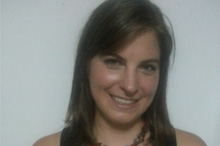
Theresa Freet is being honored as a Champion of Change for her work to expand opportunities for young learners from communities historically underserved or underrepresented in tech fields.
Education has always been a central part of my work. I believe wholeheartedly that knowledge is power. And that such power should belong to everyone.
As I became more interested in technology, it became clear that understanding computers and having the skills to code are very powerful tools in changing an individual’s prospects, and in changing the world. Technology impacts all areas of life and the people writing the code for how that technology works are determining our future. It just made sense to me that those people must be as diverse and wide a group as possible in order to harness to full potential of how technology can serve the world.
I started working with CodeMontage and Developers for Good because of Vanessa Hurst, the founder of both organizations and a lifelong friend. She always says, “Software is about humanity. It’s about helping people by using computer technology.” That resonated with me. However, I worried, like many others, that the uniformity of voices meant that software was not helping as many people as it could, or benefiting from the variety of perspectives that leads to innovation.
With CodeMontage, I work to give individuals better access to technology and to encourage those voices already in the technology sector to become more vocal leaders and community contributors. We’re working to get more variety in the field, and to better prepare all of these enthusiastic individuals for careers in computing and lifetimes of harnessing the power of their skills for good. CodeMontage recently led the Code Day at Write Speak Code, an annual action-based conference designed to give women developers the skills and confidence to be thought leaders and visible advocates in technology. By encouraging underrepresented voices to speak up more noticeably and teaching young women more about computer software, through projects like a course at Barnard College in New York City, we’re hoping to erase the disparities in the tech industry.
Including more voices in technology is challenging and will require sweat, strength, and creativity. However, there is no question to me that we need everyone working to create new technology and design its uses. All the challenges of the future, from healthcare to food systems, climate change to poverty relief, can benefit tremendously from the power of technology. More importantly, technology will become increasingly more powerful and impactful as we include more voices.
Theresa Freet is an Organizer for Developers for Good.
Learn more about TechnologyBuilding a True Pipeline for Young Women in Tech - at Scale and with Urgency
Posted by on August 12, 2013 at 10:03 AM EDT
Ruthe Farmer is being honored as a Champion of Change for her work to expand opportunities for young learners from communities historically underserved or underrepresented in tech fields.
“It is really great to be recognized for something that I love and work hard at. It can be difficult sometimes being the only girl in the technology department at my small school. Meeting other girls who share my interests is great and this award gives me confidence in my ability to succeed in a field that I love so much. Thank you.” ~ NCWIT Award for Aspirations in Computing Recipient
Notes like this give me energy. Hearing from a young woman that your work has had an impact on her life is priceless. Fortunately for me, notes like this are pretty frequent of late. But, they are also eerily consistent. Two salient bits in this short statement and so many others like it perfectly illuminate both the challenge and the solution for young women in technology – recognition and community.
In the technology education space we talk a lot about the education and workforce talent “pipeline” and all the “leaks” along the way that contribute to the attrition of women. I believe this analogy is incorrect. A pipeline implies that the system is designed as a conduit, meaning the basic purpose of flow is still happening, and that though the leaks diminish the overall output and efficiency of the system – it is nonetheless a linear system. The experience for girls in technology is a lot more like an obstacle course. There are pitfalls, like attending a school that doesn’t offer any meaningful computer science courses (the bulk of U.S. schools don’t) or growing up in a state where computer science and IT courses don’t count (only 10 U.S. States count computer science as satisfying a math or science graduation requirement). Then, obstacles like walking into a tech class as a freshman and being the only girl, non-inclusive curriculum, and even overt incidences of bias. Top that off with a consistent headwind of negative stereotypes about technology fields and the people in them. It is a wonder any young woman survives this educational equivalent of “wipeout.” Consequently, those that make it through exemplify a tremendous amount of determination and passion.
I’ve been working on tech inclusion since 2001. In fact, I’ve been at this long enough to see girls participating in a Robotics Day Camp at 12 grow up to become interns at top tech companies, graduate college, and generally make me proud. When I joined Girl Scouts I jumped at the chance to pilot an Intel sponsored engineering program for girls and appointed myself the council tech/engineering specialist (I resisted the term STEM and still do). I’ve implemented numerous related programs: Lego Robotics, Engineering Badge Day, E-Week, Design & Discovery, and Zoom into Engineering, and more. I’ve seen countless girls light up at solving a challenge or inventing a solution all their own. For many of them it is the first time they’ve had any exposure to the idea that they can be innovators and creators.
All of these efforts are inspiring, energizing, and important. There are many wonderful bright spots of innovation taking place all over the country. It absolutely takes an entire ecosystem of interventions and opportunities to yield a successful young woman in tech. But it isn’t enough… by a long shot. If you zero in on computing and IT, the participation of women and girls actually declined 64% from 2000 to 2011. Despite all our collective efforts, today young women only make up 18% of degree recipients in computer and information sciences, though they are the overwhelming majority of college students. I cannot stress the urgency of this enough. Women are being left out of the innovation economy, becoming consumers rather than creators, and their voices and minds are missing from the technology design table.
So back to those salient bits – recognition and community – and how we hope to solve this dilemma. In 2004 NCWIT was founded to build a national change leader network to aggressively address the lack of girls and women in computing. Over 450 organizations are now part of this network. I joined the effort in 2005, as a Girl Scouts of the USA representative, and continued in 2008, as an NCWIT staff member. In 2009, I began scaling up Aspirations in Computing and building the infrastructure of a national talent development pipeline solution for young women in technology (yes, I said pipeline!). It is simple, replicable and scalable – leveraging the shared mission of the 450 members in the NCWIT network to create big impact quickly and cost effectively. First, we publicly recognize young women aspiring in technology – affirming that they are on the right track, needed in the field, and possess the potential to succeed. We’re creating that experience of having a trusted outside source acknowledge and encourage a student for something they do well - for more than 1000 girls nationwide in 2013 alone. Second, we invite them into a national community of like-minded peers, supporters, and sponsors. We constantly bombard them with opportunities to develop their skills, learn more, explore, and grow. And, we stick with them. Aspirations in Computing offers a long-term network of support and encouragement for young women in technology to help transform the obstacle course into a true pipeline.
To date we’ve publicly recognized more than 2,200 young women and built a national database of more than 11,000 girls that self-identify as technical. The program has scaled to 54 sites nationwide in just five years and is on track to induct 1,500 new high school girls in 2014 (and even more each year thereafter). We are currently piloting AspireIT, a middle school ‘pay it forward’ outreach program with the potential to scale to 10,000 girls per year, further widening the funnel of girls entering in the pipeline. Evaluation and anecdotal data show that the Aspirations in Computing program works. Participants consistently report greater confidence in their technical abilities, increased enthusiasm about computing, and greater awareness of the career opportunities available to them. The heartwarming notes we receive from girls tell the same story. We are excited. The future is bright and it seems the tides are turning.
Receiving the Champions of Change recognition for this work is a tremendous honor and I am proud to share it with my colleagues, the over 1,400 Aspirations in Computing volunteers nationwide, over 450 NCWIT member organizations, and of course our “NCWIT girls.” I have enjoyed watching them achieve and look forward to the new wave of innovation this talented group of young women will create.
Ruthe Farmer is the Director of Strategic Initiatives at the National Center for Women & IT (NCWIT).
Learn more about Technologydigitalundivided: Creating Successful Urban Tech Entrepreneurs
Posted by on August 12, 2013 at 2:15 AM EDT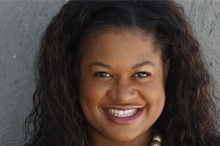
Kathryn Finney is being honored as a Champion of Change for her work to expand opportunities for young learners from communities historically underserved or underrepresented in tech fields.
Technology has the power to transform lives. I know this to be true, because it transformed my life and the life of my family. My dad, who was a high school dropout, worked his way from brewery worker in inner city Milwaukee to software engineer at Microsoft in a span of 20 years. This is a feat that could only be accomplished in the world of technology, where skill can often triumph pedigree.
In my life, technology has always been a path to economic and social security. It wasn’t until I joined one of the first tech accelerators in 2006 and encountered “the pattern”, a term used within the startup/new tech world to describe why it’s easier for some groups (i.e. young white guys from Stanford) to get funding and support than others (i.e. black women from Howard), that I fully understood the barriers faced by women and people of color in the startup world.
At digitalundivided (www.digitalundivided.com ) we dismantle “the pattern”. A significant portion of the new wealth that is being created in the United States, is being created within the tech startup eco-system. The lack of diversity in the tech space, means that communities of color aren’t benefiting from this “new economy”. At digitalundivided, we focus on making sure urban communities are prepared to actively participate in the new economy through our evidence- based digitalundivided (DID) tech model.
The DID (START, GROW, FOCUS, INVEST) is a tech model we developed after numerous interviews and group meetings with urban entrepreneurs around the country, that represents an entrepreneurial path organic to urban communities. Entrepreneurs START with an idea, then GROW that idea into a company, with FOCUS the idea become a business ready for funding and partnerships, the success of the business allows us to then INVEST in other communities or START again with a new idea.
All of our projects use the eco-system as guidance. START is the name of our local workshop series, held in six cities, focused on teaching urban entrepreneurs how to cultivate their ideas. Our first workshop was held in Atlanta in partnership with Spelman College. GROW is our network of small groups and meetups that allow entrepreneurs to network and support each other through the development of their companies.
FOCUS is the name of our signature program that mentors, develops, and advises tech companies with African American women as co-founders. A major part of this program is the annual FOCUS100 Startup Bootcamp and Symposium. At the inaugural event, held October 2012, there were African American women tech founders and co-founders from nearly 50 companies. Since FOCUS100 2013, over 30% of the companies in attendance received next step meetings with top angel and venture capital, raising over $20 million dollars in angel and seed funding from major investors like Andreesen Horowitz and Dreamit Ventures, won praises from publications like TechCrunch and the Wall Street Journal, and are working in markets as diverse as agricultural exchanges, Plus Size Fashion, and Software as a Service (SaaS). Over 80% of our speakers are women or people of color, leading #FOCUS100 to be one of the most diverse tech events on the planet.
INVEST is focused on creating and supporting a network of black Angel and Venture Capital Investors.
We would love to hear from other organizations, foundations, and social enterprises looking to fundamentally change the digital space.
Kathryn Finney is the Founder and Managing Director of digitalundivided (DID).
Learn more about TechnologyThe Next Generation of Creators in Tech
Posted by on August 12, 2013 at 1:23 AM EDT
Rebecca Garcia is being honored as a Champion of Change for her work to expand opportunities for young learners from communities historically underserved or underrepresented in tech fields.
Growing up we aren't given many choices. We're told what to wear, to say please and thanks, that two plus two equals four. Later in life we spend so much time trying to figure out how to re-ignite that spark that's dimmed, to have that fire that keeps you up at night. For me, the stick was the idea of helping people and the stone was technology.
The fire didn't begin until I realized the full potential of technology, but it wasn't the technical know-how...it was the people who believed in me and pushed me to learn more and those who still do. My journey began when people invested in me, as a 14 year old girl at MIT's iD Tech Camps, an early chance to explore my passions. And later to teach there to help other youth find theirs. But a summer camp wasn't enough, though the open learning environment stuck with me as I joined Do Something as a developer. Jumpstarting my career early in 2011 allowed me to be a part of a platform that leads youth to real offline action, not just in spirit but in measurable data, not just tens of thousands, but millions of teens across the US. Out of Do Something, CoderDojo NYC began as a side volunteer project, organizing mentors and youth for monthly sessions for web, game and app development; today it's so much more. We're proud to showcase the idea behind inclusion, with ethnic diversity and a 50:50 gender ratio of young men and women learning together.
There's a 9 year old girl who we affectionately call "Little Rebecca" who attends CoderDojo NYC. She's been with us since the beginning, and we've had the chance to see her grow. Her parents told us before attending she had never heard of computer science, and after a few months she had asked them "is this something you can do for a living?" This year she made her first Android app, and presented it in front of industry professionals. My favorite thing though, isn't her accomplishments, but hearing the excuses when she can't attend, "sorry she's at space camp" and "she is building her first robot for a science fair". I knew that if I could positively impact one girls' life--imagine what that meant bringing together others across the globe.
Joining the Hello World Foundation means helping bring together 200 CoderDojo chapters in 23 countries, not as training schools for youth but as places that serve to inspire and help the next generation become even better dreamers, thinkers and builders through technology. After starting in Ireland, it's spread like wildfire. The idea of open STEM (science, technology, engineering, mathematics) coding clubs for youth everywhere from Mexico, Japan, Slovenia, Scotland and anywhere in between. They're led by volunteers who mentor, who don't just teach, they inspire.
We're here on this planet to make meaningful connections, and they are worth more than any monetary donation. Worth more than a 'handout', or being treated differently as a 'hand-up'--we want 'handshakes', to be included. Some say there are limiting factors, whether it’s the economy, wars, or political turmoil. I say that this gives us opportunities, especially for young people, to be creative, to innovate and solve these issues with the help of technology in faster and smarter ways. Our digital footprint has more impact now than ever, and a line of code can be a catalyst for social change.
I currently work at the Hello World Foundation an Irish non-profit that aims to inspire the next generation of creators through technology.
Rebecca Garcia is the Co-Founder of CoderDojo NYC.
Learn more about TechnologyFrom Citizens to Civic Heroes
Posted by on August 9, 2013 at 1:25 PM EDT
Robert Davis is being honored as a Champion of Change for his efforts in making government more transparent and accountable through technology.
I live in Florida, and although I love the internet and technology, I'll be first to say my home state is not known for being a leader in the “tech scene.” Once in a while something really cool will happen here though, as it did in 1981. An IBM team in Boca Raton started work on project “Acorn,” or what would become the first personal computer, popularizing the term “PC.” Surprisingly, Florida actually has a notable technical history from the Flagler Railroad to NASA’s Cape Canaveral Space Center. While growing up here I thought much different about my state; the place was hot, slow moving and isolated. I always tried to learn as much as I could about other places, longing to be where "it" was happening.
I’ve been fortunate enough to travel throughout my youth and in recent years. As a junior in college, again looking outside my state, I applied for an internship in San Francisco. It was a new nonprofit I’d never heard of before in the tech scene and government space, something I was very interested in better understanding. Somehow I got a phone interview, and I was lucky enough to spend a summer interning at Code for America. During this time I was exposed to a seemingly endless array of smart people and ideas. It challenged my perspective like never before and I wondered why Florida couldn’t have its own version of this inventive environment.
I was surrounded by these innovators and creators who knew how to “make” like I could only imagine. Not only did these teams invent things, they had a genuine need to exist and they did it in the most intuitive and understandable way imaginable. I also was exposed to new ideas for organizing locally. CfA had initiated “Brigades,” or self-organized community teams of citizens around the United States, who meet regularly to help their cities grow more open (usually leveraging technology in some way). This reaffirmed my hypothesis that Florida, and every other state for that matter, had substantial room for improvement civically.
To be honest, I've felt stressed and helpless about the problems we face collectively as communities for some time. Now however, from what I’ve experienced firsthand, a new era of the “citizen” is emerging. Community groups and social clubs, much like CfA brigades, have taken root and thousands of people are learning how to access, visualize, and share information about the places they live. Even my home state is making a comeback in the tech scene. Led by a surge in coworking, startup companies and access to the internet, events and conferences are springing up like never before.
A precursor to this new engaged “citizen” is a supportive environment for learning new things, and I’m ecstatic to see Florida going through this transformation. Places like The LAB Miami and groups like The Knight Foundation have created ample opportunities for feedback and discussion, a much needed part of puzzle. More people across the country are beginning to understand that participating in the process is better than just casting a vote or watching the news broadcast. Connecting online in addition to offline, can allow us to become more engaged and informed when it is convenient. This reinforces activities like voting or attending council meetings. No longer is the give-and-take of taxes for government services satisfactory. The citizen to government relationship is usually one riddled with long lines and confusion. Instead of being mad about an unjust law or confusing budget report, we can now work together to identify and begin to correct it. Check out what’s going on with projects like OpenOakland in Oakland, CA, OpenCityApps in Chicago, Illinois, and NYCBigApps in New York. These are all examples of collaboration for good.
The new “citizen” is a team of all of us. That means you too! Share what you know. Rewrite it so others can understand better. Gather likeminded people and ask questions. Learn something new about the place you live. This won’t be an easy journey, and tough questions will be brought up that some people might not like the answer to, but we can agree that we should have access to discuss this. Only when we can see what is unclear can we create the world in which we want to live. A better world can only be achieved by working together, so will you join in?
Robert Davis is a Code for America intern alumni and an avid supporter of creating civic tools with open data for the public good
Learn more about TechnologyCollaborating to Deliver Healthcare, Education, and Outreach to the Mississippi Delta
Posted by on August 9, 2013 at 11:55 AM EDTFor the fifth year in a row, the Delta Regional Authority (DRA), a White House Rural Council member, is partnering with the Department of Defense (DOD) to provide rural health care via the Innovative Readiness Training (IRT) program. Working in the Mississippi Delta Region, where today 20 percent of the population is uninsured, this summer’s missions are taking on a new role by educating communities about the new and affordable coverage options that the Affordable Care Act is making available beginning in 2014.
Since 2009, IRT has brought military medical personnel in-training to underserved communities of the Delta region to provide free medical care to residents. DRA plays the vital role of guiding communities through the application, planning, and implementation processes. During the past four years, military reserve forces have provided general medical care, optical care, dental care, veterinary services, nutritional education, mental health care, and other support services to 24,000 Delta residents at ten sites across three states. And this summer, DRA and DOD are projected to reach an additional 20,000 patients in eleven communities across six states of the Delta – their most extensive outreach in the region to date.
Take the Hope of Martin medical mission in Martin, TN, where troops from the Navy Reserves, Air Force Reserves, and Air National Guard provided free health care services valued at more than $700,000 to more than 3,250 residents of western Tennessee. Along with immediate care, DRA has partnered with another White House Rural Council member, the Health Resources and Services Administration (HRSA) within the Department of Health and Human Services, to help DRA as it educates and connect patients to new health insurance options that will help them access affordable coverage long after the IRT mission is complete.
Another example is the Delta Medical Mission, which saw 5,771 patients and provided 10,000 resource cards at five sites over the month of July. And just this week, Army reservists were deployed to four communities in Arkansas, Kentucky, Missouri, and Tennessee for the Four State Medical mission as well as to Ferriday, Louisiana, for the Louisiana Medical program. In just three days, this mission has seen 1,400 patients.
Every patient served can mean a life changed. In Martin, TN, residents began lining up for services as early as 2 a.m. One man, so nervous to see a dentist that he was allowed to keep his dog in his lap, had tooth extractions that were years overdue. Another man was found in a hallway later in the day crying because, as he explained, with his new glasses – made on-site – “it was the first time he had been able to see the world.”
The success of IRT is a testament to interagency collaboration facilitated by the work of the White House Rural Council and reaffirming President Obama’s commitment to rural America.
Dr. Mary Wakefield is the Administrator of the Health Resources and Services Administration within the Department of Health and Human Services. Chris Masingill is the Federal Co-Chairman for the Delta Regional Authority. Doug McKalip is the Senior Policy Advisor for Rural Affairs, White House Domestic Policy Council.
- &lsaquo previous
- …
- 63
- 64
- 65
- 66
- 67
- 68
- 69
- 70
- 71
- …
- next &rsaquo


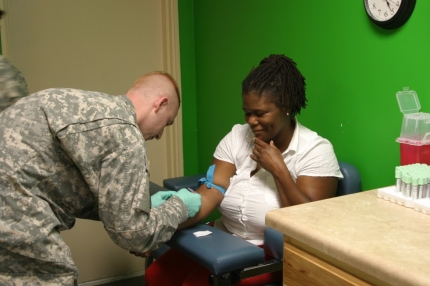
Twitter